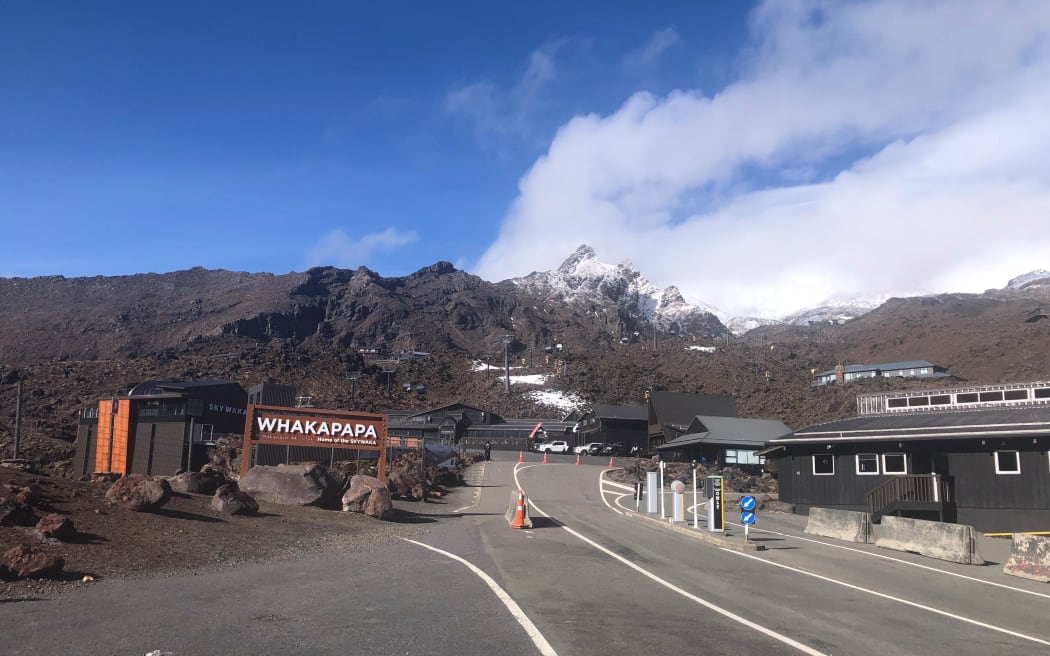The day Ruapehu Alpine Lifts went into liquidation, The Detail went to National Park Village to talk to locals about what it's been like living under a cloud of uncertainty for months.

It's not just the skifields doing tough times - it's the businesses that surround them, too. Photo: The Detail / Sharon Brettkelly
Robbie Forbes' Ski Biz shop in National Park is packed with the latest ski gear, ready for the winter tourists to flock in and hire and buy before they head up Ruapehu.
But the Whakapapa ski field needs more snow and, more importantly, a new owner.
"Everything you see, we own. It's all arriving and going nowhere," says Forbes.
He remembers 1998 as the worst season for his business, when Whakapapa was open for just 21 days.
"We've been through the tough times," he says. He's trying to keep positive, but says the uncertainty is scary.
The Whakapapa and Tūroa skifields urgently need new owners after Ruapehu Alpine Lifts (RAL) was liquidated last week.
While the government has committed $5 million to RAL's liquidators to keep the skifield open this season, the business' long-term future is still unsure.
Forbes expects the ski fields will be bought by separate companies.
The worst case scenario, that the ski fields stay shut this season, would have been tragic.
"People have put their lives into this," says Forbes.
A few blocks down the road another National Park business owner, Jim, opened his bar just a month ago.
"Limbo is the best word, people don't know what's happening. It's hard to plan for the future," he says.
Jim's spent two years doing up an old bar from the 1950s and, like many in National Park, is nervously waiting to hear of the ski fields' fate.
He says the village gets good summer business from tourists doing the Tongariro Crossing and other walks, or going on hunting or cycling trips. But the winter trade depends on the ski business, from the visitors staying at the lodges in town and locals who work on the mountain.
"If they don't have an income, they don't spend the money and we all suffer," he says.
Jim believes there's been too much emphasis on the mountain over the years and he and other operators need to look at non-ski activities.
Across the road, The Detail talks to Seamus, who looks after some holiday properties in the town.
"We just want somebody to make a decision about the mountain and decide now," says Seamus, who is critical of Ruapehu Alpine Lifts' handling of the operation and the lack of consultation with iwi on the future of the mountain.
He also feels the village has become too dependent on the ski fields, with many of the houses now owned by investors or skiers who live out of town.
"Summer business is a lot better than the mountain [in winter] now, because the mountain is unpredictable. You only need a couple of weeks of a storm come through and that's two weeks gone," Seamus says.
Back at his ski gear shop, Robbie Forbes says he has 10 workers lined up and ready to start, but he's had to put them off until a new owner is found.
He says he can't comprehend the mountain staying shut.
"You're not just hurting individuals, you're hurting everybody."
Hear more about the threats to the Ruapehu tourism ecosystem by listening to the full podcast.
Check out how to listen to and follow The Detail here.
You can also stay up-to-date by liking us on Facebook or following us on Twitter.

Photo:


